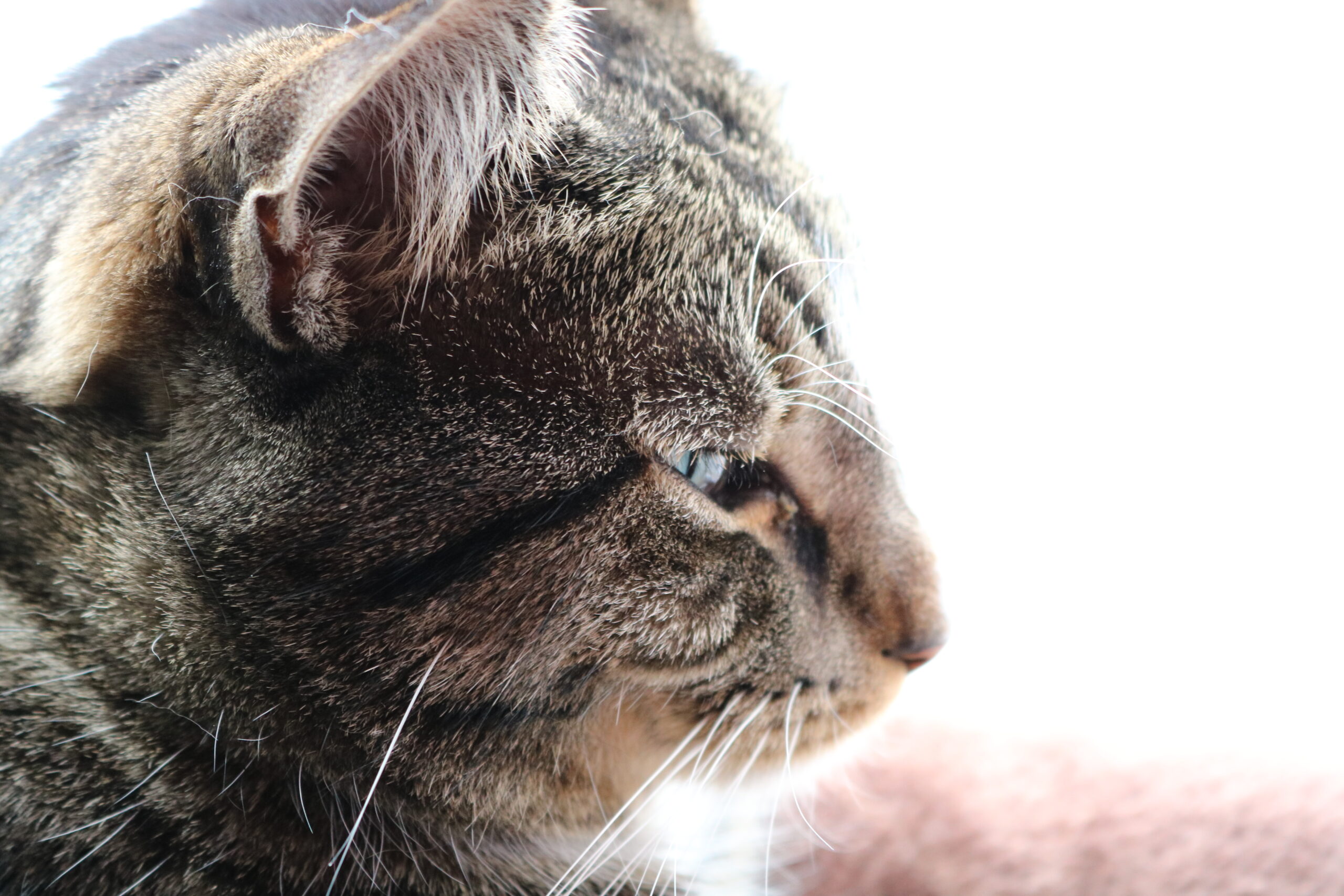Science
Research Reveals Cats with Dementia May Unlock Alzheimer’s Secrets

Recent research indicates that cats suffering from dementia exhibit brain changes akin to those observed in humans with Alzheimer’s disease. The study highlights the potential for these felines to serve as valuable natural models in understanding and treating both conditions. Findings suggest that a build-up of the toxic protein amyloid-beta plays a crucial role in dementia, which could shed light on its impact on cognitive decline in both species.
Understanding Feline Dementia
Dementia in cats, scientifically known as feline cognitive dysfunction syndrome (CDS), affects many senior cats, leading to significant behavioral and cognitive changes. Symptoms often include confusion, altered sleep patterns, and increased vocalization, which are remarkably similar to those seen in human Alzheimer’s patients. As cats age, the risk of developing dementia grows, prompting the need for better understanding and management strategies.
Researchers from the University of Edinburgh conducted an in-depth examination of the brains of 25 cats after their passing, including those exhibiting signs of dementia. Their findings revealed a concerning accumulation of amyloid-beta within the synapses—critical connections between brain cells—of older cats. This accumulation is indicative of deteriorating cognitive function.
The study found that as synapses are lost, memory and thinking abilities decline, paralleling the experiences of humans with Alzheimer’s. Notably, the research identified that astrocytes and microglia, which are types of brain support cells, were involved in engulfing these affected synapses. This process, known as synaptic pruning, is essential during brain development but can lead to detrimental effects in cases of dementia.
Implications for Future Research
The implications of these findings extend beyond feline health. The researchers suggest that studying cats with dementia can significantly contribute to understanding Alzheimer’s disease in humans. Historically, scientists have relied on genetically modified rodent models for Alzheimer’s research; however, these animals do not naturally develop dementia. This new avenue of research offers a promising alternative.
“The study enhances our understanding of dementia in cats and may pave the way for future treatments for both cats and humans,” the researchers noted.
Published in the European Journal of Neuroscience, the research titled “Pathology Increases Synaptic Engulfment by Glia in Feline Cognitive Dysfunction Syndrome: A Naturally Occurring Model of Alzheimer’s Disease” highlights a significant breakthrough in the field. The findings may not only assist in recognizing and managing dementia symptoms in aging pets but could also inform therapeutic strategies for humans grappling with Alzheimer’s.
As more insights emerge from this research, pet owners are encouraged to observe their cats for signs of cognitive dysfunction. Early recognition and management of symptoms can enhance the quality of life for aging pets, aligning with ongoing efforts to improve animal welfare.
Overall, this research reinforces the interconnectedness of human and animal health, emphasizing how studying one can illuminate the other, potentially unlocking new avenues for treatment and understanding in the realm of neurodegenerative diseases.
-

 Science3 months ago
Science3 months agoToyoake City Proposes Daily Two-Hour Smartphone Use Limit
-

 Top Stories3 months ago
Top Stories3 months agoPedestrian Fatally Injured in Esquimalt Collision on August 14
-

 Health3 months ago
Health3 months agoB.C. Review Reveals Urgent Need for Rare-Disease Drug Reforms
-

 Technology3 months ago
Technology3 months agoDark Adventure Game “Bye Sweet Carole” Set for October Release
-

 World3 months ago
World3 months agoJimmy Lai’s Defense Challenges Charges Under National Security Law
-

 Lifestyle3 months ago
Lifestyle3 months agoVictoria’s Pop-Up Shop Shines Light on B.C.’s Wolf Cull
-

 Technology3 months ago
Technology3 months agoKonami Revives Iconic Metal Gear Solid Delta Ahead of Release
-

 Technology3 months ago
Technology3 months agoApple Expands Self-Service Repair Program to Canada
-

 Technology3 months ago
Technology3 months agoSnapmaker U1 Color 3D Printer Redefines Speed and Sustainability
-

 Technology3 months ago
Technology3 months agoAION Folding Knife: Redefining EDC Design with Premium Materials
-

 Business3 months ago
Business3 months agoGordon Murray Automotive Unveils S1 LM and Le Mans GTR at Monterey
-

 Technology3 months ago
Technology3 months agoSolve Today’s Wordle Challenge: Hints and Answer for August 19









